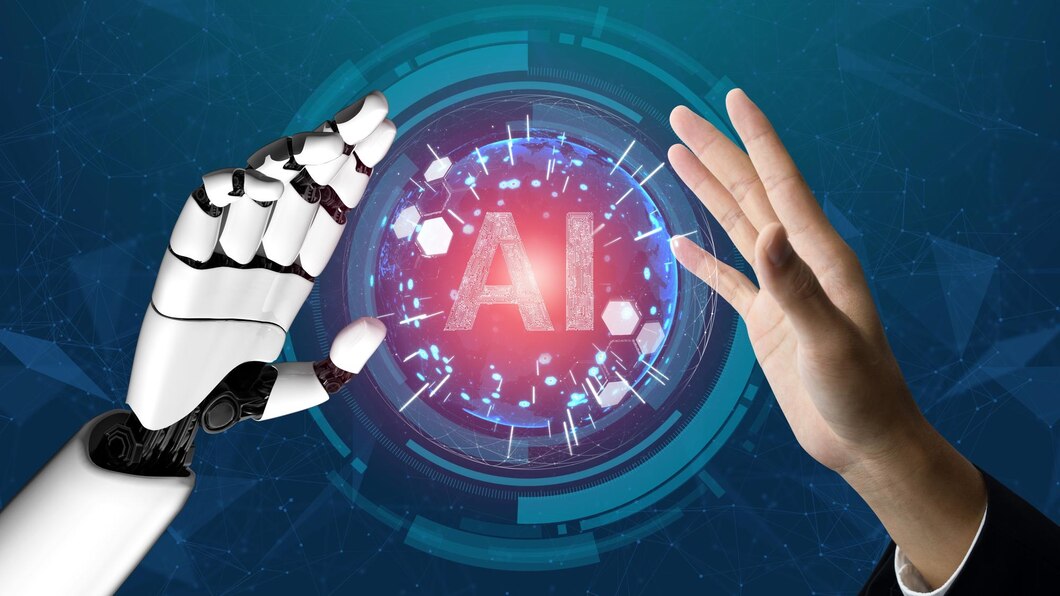
Have you ever heard the term regenerative AI software or “regenerative AI technology”? It may initially sound like a complex concept, but it is quite simple. Regenerative AI is an emerging approach to artificial intelligence that takes inspiration from natural systems. Instead of simply mimicking human behavior, Regenerative AI models are designed to learn and adapt independently, much like how ecosystems can self-regulate and heal themselves.
But why does this matter for businesses? This blog will explore the growing trend of Regenerative AI and explain why it’s more than just a buzzword or a fad. We’ll delve into the benefits of incorporating this technology into your business operations and discuss how it can create significant value for your company in today’s fast-paced marketplace. So, let’s dive in and discover the compelling case for embracing Regenerative AI technology in your organization.
Introduction To The Concept Of Regenerative AI And Its Potential Impact On Businesses
Regenerative AI is a revolutionary technology that has the potential to transform the way businesses operate. This approach to artificial intelligence goes beyond traditional machine learning algorithms by allowing algorithms to learn and adapt to new information continually. It means that the AI model can regenerate itself and, as a result, becomes more accurate and effective over time.
It opens up many business possibilities, from optimizing operations to improving customer experiences. With Regenerative AI, businesses can stay ahead of the curve and make data-driven decisions that are more precise and insightful. The impact of this technology is sure to be significant, and those who embrace it will undoubtedly reap the rewards.
Discussing The Benefits Of Integrating Regenerative AI Technology, Such As Increased Efficiency, Cost Savings, And Sustainable Growth
As industries continue to evolve, one of the most exciting developments is the increasing prevalence of Regenerative AI technology. This innovative approach to automation streamlines operations cuts costs, and fosters a sustainable approach to growth and development.
By minimizing waste and optimizing processes, Regenerative AI can revolutionize industries across the board—from manufacturing to healthcare to finance. As we build a more efficient, equitable, and environmentally conscious future, there’s no doubt that Regenerative AI will be a key driver of progress.
Case Studies Of Companies That Have Successfully Implemented Regenerative AI And Their Outcomes
Regenerative AI has the potential to revolutionize the way businesses function, and several companies have already started successfully implementing this technology. By leveraging data and machine learning, these companies have optimized processes, reduced waste, and improved their bottom line. For example, one major retail chain utilized Regenerative AI to improve its inventory management, reducing overstock and waste.
Another company in the food industry used this technology to significantly reduce the amount of food waste in its supply chain. These case studies demonstrate the power of Regenerative AI in improving business operations and sustainability and highlight the potential benefits for companies across various industries.
Addressing Common Misconceptions About Regenerative AI, Such As Fears Of Job Loss Or Lack Of Control
As Regenerative AI develops, many people hold misconceptions about its potential impact. One common fear is that it will lead to job loss as machines replace human workers. However, experts suggest Regenerative AI will create more jobs in software development and data analysis. Another misconception is that we will lose control over AI systems, leaving us vulnerable to their decisions.
But the truth is that humans will always retain ultimate control over these systems, as developers and engineers continuously monitor and adjust their functions. By addressing these misconceptions, we can see the real potential of regenerative AI to improve our lives.
Exploring Ethical Considerations And Responsible Usage Of Regenerative AI In Business Practices
As technology progresses, businesses are faced with the opportunity to integrate Regenerative AI into their practices. However, as with any new technology, there are ethical considerations that must be taken into account. Responsible use of Regenerative AI is crucial for avoiding potential harm to society and our planet.
With the power to regenerate and create comes the responsibility to ensure that it is done sustainably and ethically. It is paramount that businesses adopt a mindful and measured approach to incorporating Regenerative AI into their practices, thus ensuring that the potential benefits of this technology are harnessed for the greater good.
How To Get Started With Implementing Regenerative AI in Your Company
As we move towards a more sustainable future, many businesses are turning to regenerative artificial intelligence (AI) to reduce their environmental impact while increasing efficiency and profitability. Implementing this technology can seem daunting, but there are several steps you can take to get started. First, assess your current operations and identify areas where AI could make the biggest difference. Then, research and select an AI system that aligns with your goals.
From there, work with experts to train the system, integrate it into your business, and continually monitor its performance. Luckily, plenty of resources are available to help you along the way, from industry associations to consulting firms to online forums. With the right approach and resources, you can successfully implement Regenerative AI and take an important step towards a more sustainable future for your business and the planet.
Tips For Managing The Transition To Regenerative AI and Ensuring A Smooth Integration Process
The world of artificial intelligence is constantly evolving, and businesses are always looking for ways to stay ahead of the curve. One of the latest developments is the transition to Regenerative AI, which promises to take automation to the next level by replicating natural processes. However, integrating this new technology can be challenging.
Businesses must take a strategic approach and implement the right tips for managing the integration process to ensure a smooth transition. By prioritizing training and hiring experts in Regenerative AI, investing in powerful hardware, and partnering with the right vendors, businesses can successfully integrate Regenerative AI into their operations and experience the many benefits this technology offers.
Real-Life Examples Of Companies That Have Faced Challenges With Adoption And How They Overcame Them
Running a successful business can be a complicated endeavor, and one of the biggest challenges companies face is implementing changes and new technologies. Even well-established businesses have faced challenges with adoption, but the ones that emerge successful are those that overcome these challenges and push forward.
One example is Blockbuster, a company that faced great difficulty adapting to the advent of streaming services and eventually disappeared. On the other hand, Netflix managed to outmaneuver Blockbuster and became the giant in movie streaming, thanks to its willingness to take risks and try new things.
Another example is Kodak, which failed to capitalize on the smartphone revolution and shifted towards digital products and services too late, eventually declining. Conversely, Fujifilm invested early in digital technology and successfully transitioned from analog to digital.
These are just a few instances of how companies have had to navigate challenges in implementation and adoption, and the key takeaway is that adaptability, innovation, and risk-taking are crucial in mitigating these challenges.
Conclusion
In conclusion, the concept of Regenerative AI has the potential to revolutionize the way businesses operate and lead us toward a more sustainable future. As discussed, traditional AI systems have limitations and can cause process inefficiencies.
However, by integrating Regenerative AI technology, companies can increase efficiency, save costs, and ensure sustainable growth. The case studies we examined illustrate the positive outcomes businesses can achieve by adopting Regenerative AI.
Addressing common misconceptions about this technology, such as fears of job loss or lack of control, is also important. Responsible usage and ethical considerations are crucial when implementing Regenerative AI in business practices.
Taking steps towards integrating this technology may seem daunting initially, but resources are available to guide you. Remember to manage the transition carefully and learn from real-life examples of companies that have faced challenges with adoption.
By embracing Regenerative AI in your company, you will stay ahead of the competition and contribute towards a better future for our planet. So don’t hesitate any longer – take action now and start exploring how Regenerative AI can benefit your business.
Read Also:






